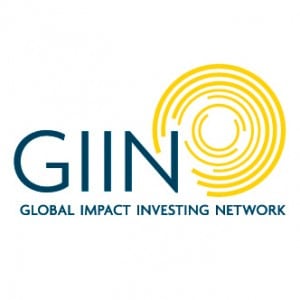 The Global Impact Investment Network (GIIN) is a not-for-profit dedicated to increasing the scale and effectiveness of impact investing. Today, they discuss the developing investment and philanthropic climate, with more and more venture capitalists moving into the social impact world, bringing more ideas from the private sector. One fundamental concept, is unsurprisingly data. But how do they see the change happening, and what should you know now?
The Global Impact Investment Network (GIIN) is a not-for-profit dedicated to increasing the scale and effectiveness of impact investing. Today, they discuss the developing investment and philanthropic climate, with more and more venture capitalists moving into the social impact world, bringing more ideas from the private sector. One fundamental concept, is unsurprisingly data. But how do they see the change happening, and what should you know now?
—
The “markets for good” are attracting a broader and more diverse set of funders, reaching well beyond traditional philanthropic grant-makers. In recent years, more big-name financial institutions, family offices, and fund managers are all entering the impact investing field, seeking positive social or environmental impact with investments that produce a financial return. With experience in traditional investing, these impact investors are not strangers to data – for most, consideration of rigorous financial data and analysis is second nature in nearly every step of the investment process. Unsurprisingly, as these investors look to have a positive impact, they are putting increasing importance on similar social and environmental data.
In a 2013 report from J.P. Morgan and the Global Impact Investing Network, all but four percent of surveyed impact investors reported that they track social and/or environmental performance using metrics, and 82 percent of fund managers responding to the same survey believed that impact measurement was necessary or important to attract and raise capital from impact investors. Additionally, innovative new impact investment products such as social impact bonds are explicitly tying financial returns for investors to the achievement of specific social goals.
As social and environmental performance data becomes more readily available, impact investors are putting it to use in support of their investment practices, the business models of their portfolio companies, and overall market development.
Data to support investment management
For investors to fairly track, compare, and aggregate social and environmental impact, performance data must be consistently measured. To support this, the Global Impact Investing Network manages IRIS, the catalog of generally-accepted social, environmental, and financial performance metrics for impact investors. With IRIS-aligned performance data, impact investors can compare performance over time for a single investee or among investees, allowing for clearer understanding about the effectiveness of different approaches to address social and environmental challenges.
This type of analysis can, in the long run, inform more effective capital deployment. For example, Credit Suisse uses IRIS in its investment process, reporting IRIS-aligned performance data to their investor clients. In doing so, Credit Suisse and their clients gain a clearer understanding of their investments’ results in specific and comparable terms.
Data to support mission-driven portfolio companies
Investors are also beginning to use non-financial data to productively work with portfolio companies on maximizing social and environmental impact through effective business operations. Equipped with performance data, investees and investors can adjust business approaches, as India-based impact investment fund Lok Capital does with investees via their Social Action Plan, which helps mission-driven entrepreneurs integrate social performance management into day-to-day operations. According to Lok’s latest impact report, integrating social data into portfolio management, “adds value to company operations by better understanding clients and identifying… organizational gaps.” Ultimately, close integration of impact data can lead to increased efficiencies and improved performance by businesses working with impact investors.
Data to support market transparency and accountability
Beyond the day-to-day work of impact investors and their portfolio companies, the broader impact investing field is strengthened by social and environmental performance data. In a market defined by investors’ intention to generate social and environmental benefits, impact measurement is an important demonstration of this intention and holds investors accountable. Additionally, social and environmental performance data provides real transparency into the full value of an impact investment to all stakeholders.
For example, the Inter-American Development Bank (IDB)’s Opportunities for the Majority (OMJ) initiative uses IRIS metrics to track its portfolio companies’ progress in providing important goods, services, and employment to people living at the bottom of the socioeconomic pyramid. By doing this, and further, by aggregating the performance of its full portfolio, IDB holds itself and its investees accountable for making progress towards their shared goal to improve the lives of poor people in Latin America and the Caribbean.
The goal of the impact investing market – like all markets for good – is to finance solutions that will improve lives and benefit the environment. Impact measurement provides transparency and value for stakeholders along the full value chain, from investors to social entrepreneurs, and, most importantly, the end beneficiaries of products and services with positive impact. As the impact investing market continues to grow, credible and rigorous social and environmental performance data remains an important driver toward our collective goals.
Many thanks to the team at GIIN for this wonderful piece. Be sure to follow and ask them questions on Twitter, and let us at Markets For Good know what you think as well.
